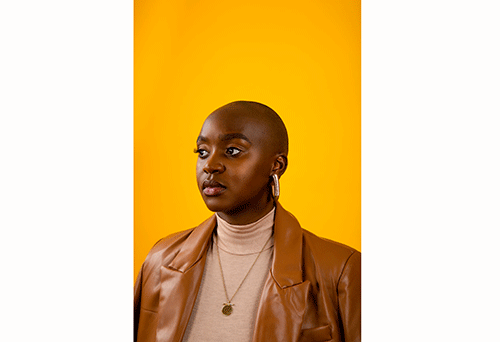Ndiilokelwa Nthengwe
The world is currently reeling with the recent ruling by the US Supreme Court to overturn Roe vs Wade ‘that previously legalised abortion across the United States in 1973.’ This comes after a draft opinion was leaked a month earlier, revealing that the justices would strike down this 50-year-old decision, which protected the choice and bodily integrity of millions of Americans.
This came across as a huge blow to abortion rights’ activists from across the globe, particularly because the US (and many western-eurocentric) countries are regarded as avante-garde, liberal beacons for the rest of the world to catch up to. But just like the Global Gag Rule that was re-enacted by Trump’s administration, which ‘prohibited foreign non-governmental organisations (NGOs) who receive US global health assistance from providing legal abortion services or referrals’, how will the rest of the world be impacted by Roe v Wade?
To contextualise the US Supreme Court’s decision, ‘…the matter of abortion legislation has been returned to individual states. This has not introduced a total ban on abortion throughout the United States. Instead, individual states will decide their own abortion legislation,’ according to RightToLife News. This may seem like a practical decision from a purely regulatory standpoint to have every State have jurisdiction over their own constituencies. But with the devil being in the details, its impact is catastrophic, particularly as constitutional rights have been undermined.
For example, in Namibia, the ‘Abortion and Sterilisation Act No.2 of 1975’ was inherited 47 years ago from an apartheid administration, and has in this sense been codified into law across the country, restricting access to abortion under very impossible conditions. If every region in Namibia could enact their own laws, this would mean that the Zambezi, Kavango, Kunene and Omusati regions, for example, would have the liberty to outrightly ban or expand their laws.
To be completely honest, we’d expect these regions (and more) to retain a draconian Act as they’re known to be religious and traditionally concentrated areas in our country.
This would mean thousands of Namibians (majority who do not have resources), would cross the borders (as they already do) to travel to a more ‘liberal region or country’ for abortion services. ‘People of colour and other marginalised, low-income people will be most affected by an overturning of landmark abortion case Roe v. Wade. More than half of the nation’s Black population lives in the South, where women of colour, including Hispanic women, make up a significant proportion. The Plains states also have a large indigenous population’, as further contextualised in USA Today.
With the above being said, where does the rest of the world fit into this puzzle to understand the full picture on the impact and harm this decision will have on everyone, specifically in Africa? ‘…Lawmakers might see the overturning of Roe v Wade as reason not to update some of these draconian laws that most African women are exposed to,’ says a public diplomacy researcher at the African Centre for the Study of the United States. The article further elaborates that African states receive major funding in healthcare programmes from the US, and that ‘…shifts in policy in the United States impact policies in Africa, and can lead to greater limitations in African countries that already have restrictive rules towards abortion.’ In fact, the researcher further purports that African states have already been affected by the Global Gag Rule re-enacted by Trump’s administration. This is a 1984 policy, which has since been enacted or revoked, according to different administrations that lean between conservatism and liberalism.
That being said, President Biden’s administration rescinded the policy and announced that ‘the country would reinstate funding to the United Nations Population Fund (UNFPA).’
‘Over the past 20 years, the United States has invested more than US$100 billion in the health of sub-Saharan African nations. This makes the United States the largest donor in the world to sub-Saharan Africa,’ as published by the US Embassy. In fact, the UNFPA Supplies is the world’s largest provider of donated contraceptives.
This again should beg critical questions on what this could potentially look like in funding and donations, particularly as the US funds the UNFPA, which donates SRHR products to Africa and beyond: Will there be less funding to the UNFPA, which will significantly affect access to SRHR services? As a matter of fact, in 2018, the UNFPA donated N$7 million worth of contraceptives to Namibia.
Will more restrictions be imposed, as it relates to aid through foreign policy? How do we ensure that despite the devastating circumstances the Americans find themselves in, that we safeguard abortion healthcare provisions? Even with a very progressive administration such as Biden’s, constitutionalism might still be undermined, so how do we protect and strengthen ours?
Namibia is currently in the process of conducting public hearings on abortion rights.
This is a clarion call to Namibia and the world over still retaining draconian laws that restrict freedom of choice not to jump from the frying pan into the fire, but to vociferously guard the dignity and reproductive agency of all persons.
Abortion rights are human rights, and overturning, restricting or banning reproductive rights directly undermines constitutional freedoms and tenets universally and fundamentally declared.
Sierra Leone, a West African country with one of the highest infant mortality rates in the world, recently announced that their 1861 colonial-era draconian law will be decriminalised, just amidst Roe vs Wade.
Could Namibia defy uncritical, lazy group-think arguments which side with the West to rightfully and constitutionally protect the choices of women, girls and non-conforming persons?


